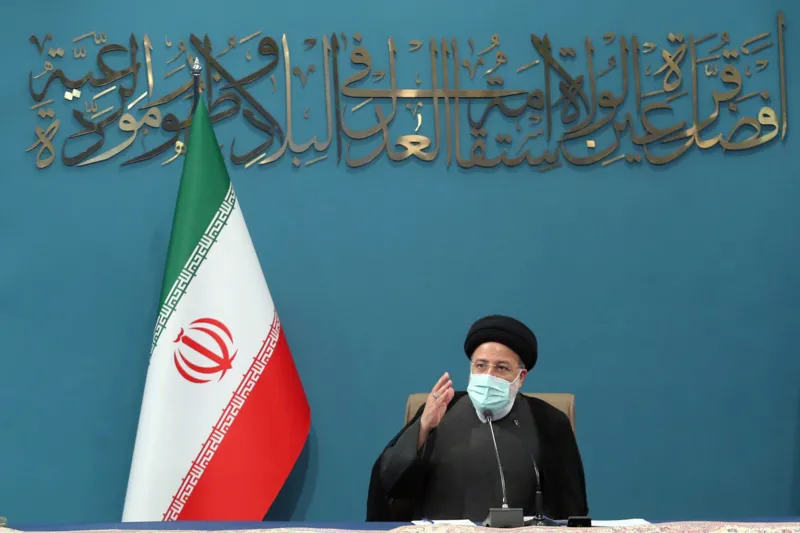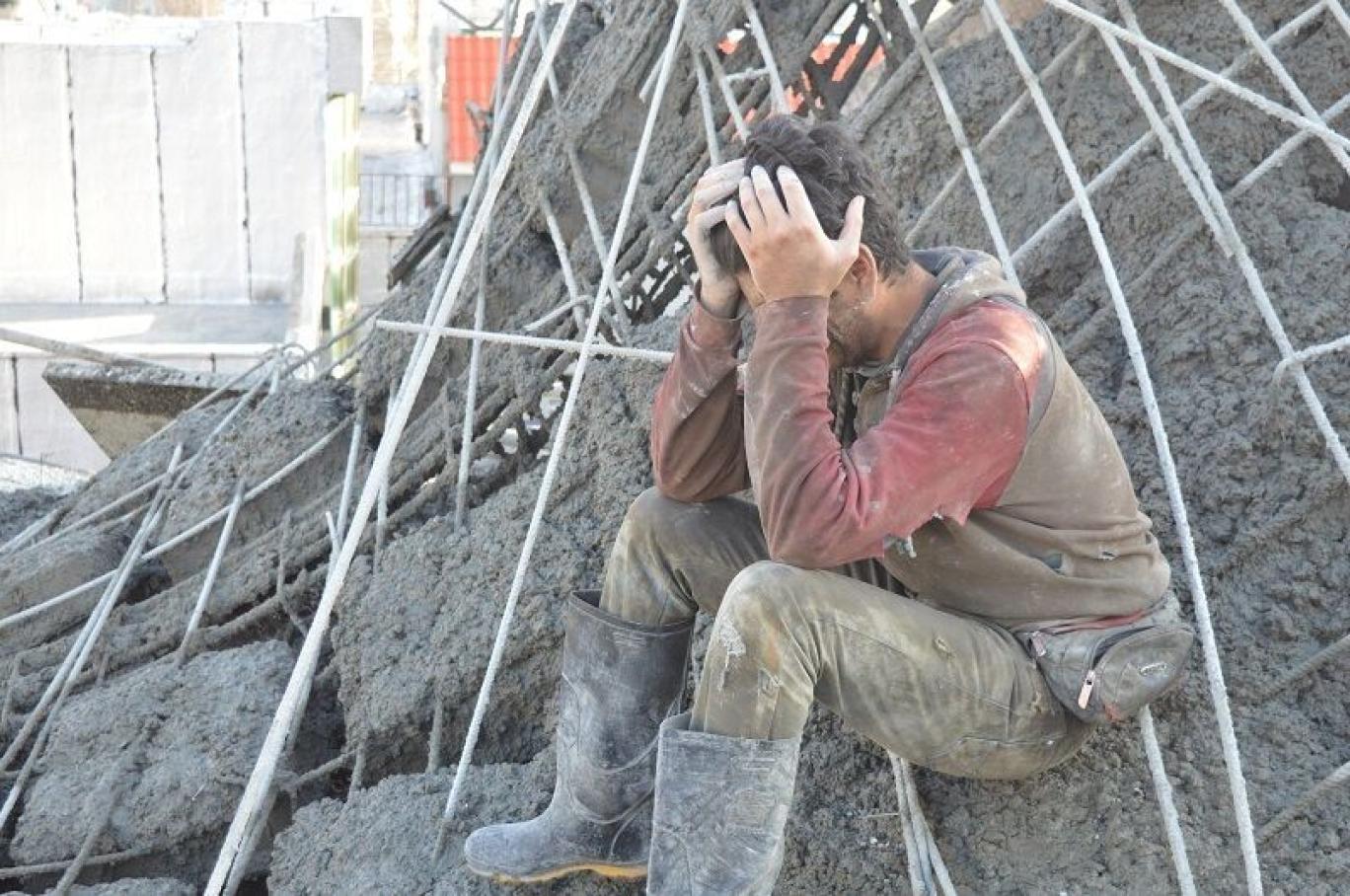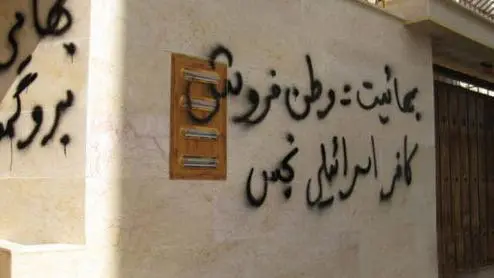
Do Not Side With the Losers
The editorial of Mostaghel urges that Iran must beware of siding with the losers on the international level, now that the world powers are fighting over a new world order.
While the world order is being challenged by world powers, the best strategy is to adopt a balanced, fluid policy, which will help in embracing the best and most viable solutions to serve the national interest.
The challenges underway on the global level are a critical competition between those that are for and against the status quo. Obviously, the United States and its allies plan to preserve the current order and control other countries on global and regional levels. In other words, they are going to prevent any changes in the current world order. This face-off between world powers can be seen in the Russian invasion of Ukraine, the energy crisis, global food shortages, and the possible crisis in Taiwan.
The possible collapse of the current global order and the emergence of a new one can be both a threat and an opportunity for the regional powers. If the challenges between world powers are not realistically analyzed, it can cause irreparable damage to national interests and even the sovereignty of a country. If the wishes of country’s rulers are given priority over correct assessments of ongoing events, it will have adverse consequences – which will be similar to what ended in the occupation of Iran by the Allies during World War II.
Now with Iran’s unilateral policies in support of Russia and China, which are in violation of the policy of independence from the East and the West, the country is heading toward a very dangerous situation.
Vladimir Putin’s presence in Tehran was fully in line with Russia’s interests. He is preventing the nuclear deal between Iran and the Western powers from coming to fruition, and is doing his best to drag other countries into the war against Ukraine. The policy of buying drones from Iran is for pulling Iran into the quagmire of Ukraine.
Iran’s national interests necessitate having a fluid policy and reaching necessary agreements with the West, while avoiding taking sides with the losers.
Iran’s Confused Environmental Diplomacy
The editorial of Payam-e Ma focuses on Iran’s recent vote in abstention regarding the UN environmental resolution, calling it a sign of confusion in the country’s environmental diplomacy.
Since the 13th government took office, government officials, and particularly President Ebrahim Raisi, have rightfully stressed on paying attention to the environment. Moreover, the head of the Environment Department has underscored the need for preserving the environment and deploying environmental diplomacy and international cooperation.
But these stances must turn into domestically and internationally integrated policies. It was just announced that in a non-binding resolution, the UN General Assembly recognized the right to a clean environment as a human right.
But what was surprising was Iran’s vote. Along with Russia, Syria, China, Belarus, Cambodia, Ethiopia and Kyrgyzstan, Iran voted in abstention, while no country voted against it.
What is the message of Iran’s vote regarding a non-binding resolution for the world and especially the regional countries? How will the regional and neighboring countries, that were recently hosted in Iran to consult about environmental issues, see Iran’s vote regarding this UN resolution?
Those who are aware of the international issues know of the significance of any action or reaction by countries, and the views expressed by countries in bilateral and multilateral talks and summits are not considered accidental. That Iran takes sides with Russia and China on most large-scale issues is understandable as a strategic policy. But for a resolution that was favored by 161 countries, siding with Russia and China seems excessive.
It will also create doubts among Iran’s allies and friendly countries in the region about Iran’s commitment to environmental issues. It seems necessary that Iran should formulate its foreign policy regarding environmental issues so that at least there is no confusion in its environmental diplomacy.
Iran-US Relations After January 2023
The editorial of Arman Melli urges that Iran must reach an agreement with Biden’s administration over the nuclear deal before January 2023, when it is very likely that the Republicans will take control of the US Congress making it very difficult for Biden to remain in the deal.
It is very difficult to undertake economic reconstruction without an agreement over the nuclear deal (JCPOA), and it is not possible to cut inflation to 18 percent in Iran solely by implementing economic reforms over the next two years.
It must be noted that it is impossible to ask the United States to guarantee it will not pull out of the JCPOA in the future, because that will not happen without two thirds of the US Senate voting to change the JCPOA to a treaty, which is impossible at least until January 2023. With all the developments taking place in US domestic politics, it is highly likely that the Republicans will take charge of the US Congress again in January. If they take over the US Congress, it will be very difficult to push the JCPOA forward, as they will put Biden’s administration under more pressure to fully withdraw from the nuclear deal with Iran.
If by then the US administration cannot reach an agreement with Iran over the JCPOA, as well as regional developments, these pressures on Biden’s administration will massively increase. The Americans have not received any positive signals from Iran for some time, with American media suggesting that the path to negotiation over Iran’s regional role has been blocked.
This will have negative impacts on the destiny of the JCPOA, because the strategy of Biden’s administration is to resolve this issue step by step.
With the United States pulling out of Afghanistan, the Taliban is flexing its muscle and has made progress in all areas of Afghanistan. Now there is this growing concern in both the United States and Iran over the Taliban’s next move which might pose new threats to Iran’s neighboring country, turning Afghanistan into a safe haven for takfiri and terrorist groups.
Amid all these variables, Iran cannot merely rely on the Chinese and Russian economies for help, because the United States will preserve its hegemony over international economic bodies at least until 2028.
It Can Never Be Accepted!
The editorial of Etemad, penned by “reformist” journalist Ahmad Zeidabadi, states that Iranians will not tolerate the stigma of becoming fully dependent on Russia and backing its war against Ukraine.
In recent days, the ultra-conservative “hardline” media outlets have been talking of backing Russia in its invasion of Ukraine. They are speculating about Russia as an emerging super-power, suggesting that helping Russia in its war against Ukraine is a move against the United States and as such is a step toward providing for Iran’s interests!
It was in the Russo-Persian wars that Iranians came face to face with the modern world and experienced the intervention of big powers in their own affairs with their own flesh and blood.
To Iranians, the Russians, of course, have been always more despicable than their British and later American counterparts for invading and occupying a part of Iran’s soil. Iranian society, nevertheless, has always been sensitive about the influence and intervention of Britain and the United States just as much as against Russia’s expansionism, intervention, and influence in Iran.
In fact, in Iranian public opinion, nothing is as delegitimizing as dependence on a foreign power. That is why the opposition to the Iranian government has done its utmost in recent years to show that the government is dependent on Russia, as this would fully delegitimize it.
But now, some of those in power in Iran who see the revival of the nuclear deal to their own disadvantage talk openly about the necessity of Iran backing the Russian war against Ukraine. Such a development is not only against the UN Charter and international law and will escalate the international pressures on Iran, but it also means nothing but becoming dependent on Russia and turning into a vassal state in the world order.
That is exactly why any call for backing the Russian invasion of Ukraine will create a crisis for the Iranian government and will fully delegitimize it. The Iranian government’s dependence on Russia will delegitimize it in the court of public opinion in Iran. So, if Iranian officials are against backing Russia in its war against Ukraine, they must clearly and publicly announce it. And if they agree with it, then they will be responsible for all the catastrophes that will result from engaging in this war.
After 200 years of suffering because of the influence of foreigners, Iranians will not tolerate the shame and disgrace of having such relations with a world power once again.

Telegram Channel Close to IRGC Intelligence Office: Top-secret Project for Building Nuclear Bomb

A Telegram channel close to the IRGC Intelligence Office announced that at the Fordow nuclear facility, the “top-secret project of Emad” is pursued for building Iran’s nuclear warheads, and in case of an attack against the Natanz nuclear facility, this project will be implemented.
Meanwhile, Mohammad Eslami, head of Iran’s Atomic Energy Organization, reiterated the recent stances of Iranian officials regarding Iran’s nuclear program, saying that “Iran has the technical capability for building a nuclear bomb, but it is not on its agenda.”
Bisimchi Media channel on Telegram released a video clip showing the plan for building nuclear bombs in the underground nuclear facilities of Fordow, in case of any attack against the Natanz nuclear facility.
The videoclip claims that Iran has launched a chain of advanced IR-6 centrifuges which can immediately turn Iran’s nuclear program into a program for producing nuclear weapons.
This Telegram channel has tried to attribute its claims to Western intelligence services’ reports. In this report, it is claimed that the British intelligence service announced that Iran has enough material for building a nuclear bomb.
It also claims that the Fordow facility has been assigned to implement the Emad Project, in case of any attacks by the West.
In 2018, former Israeli Prime Minister Benjamin Netanyahu first exposed the Emad Project, saying that “we can now prove that the Emad Project is a comprehensive program for planning, building, and testing nuclear weapons, and Iran keeps the materials related to this project completely secret so that it can develop atomic weapons whenever it chooses to.”
While the talks for reviving the nuclear deal (JCPOA) have not come to fruition, Iran has bolstered its own activities for uranium enrichment.
This Telegram channel also claimed that Iran can “turn New York into hellish ruins” by using ballistic missiles.
Kamal Kharazi, advisor to Iranian Supreme Leader Ali Khamenei, had earlier said in an interview with Al-Jazeera network that Iran has the technical capabilities for building nuclear bombs, but does not intend to do so.
Ebrahim Raisi Reacts to Recent Objections by Iranian Women to Compulsory Hijab

With the escalation of Iranian women’s objections to compulsory hijab in Iran, Iranian President Ebrahim Raisi underscored the issue of “promoting virtue and preventing vice,” saying that his government is determined to enforce the “prevention of vice.”
This means Raisi’s government is going to impose the so-called “Islamic hijab” on Iranian women more forcefully.
In his meeting with members of the Headquarters for the Promotion of Virtue and Prevention of Vice, Raisi praised the performance of this organization, stressing that the government is more dutiful than other public bodies when it comes to promoting virtue and preventing vice.
This organization was established in 1993 by the direct order of Iranian Supreme Leader Ali Khamenei. Promoting virtue and preventing vice is called a “religious duty” which includes forcing women to wear the hijab.
In recent weeks, as Iranian women have widely objected to the compulsory hijab, law enforcement forces have more actively and brutally confronted those who, according to the Iranian government, wear “bad hijab.”
The new round of protests against the compulsory hijab recently escalated when some civil activists asked women to take off their hijabs on July 12. On that day, many protesting women released their own images on social media after taking off their hijabs.
Meanwhile, videos of violent confrontations between police forces and the so-called “bad hijab women” have been released on social media.
The heightening of women’s protests against the compulsory hijab also made Iranian Supreme Leader Ali Khamenei react to the issue; he attributed the women’s protests to other countries.
Khamenei called the protests against the compulsory hijab a “pretext” which is propagandized by “American and British official media and their mercenaries and followers.”
The “Islamic hijab” describes a type of outfit for Muslim women, over which there is no consensus among Muslims. In Iran, too, the “Islamic hijab” has meant different things at different periods of time.
Eight Workers Self-immolate in Less Than 70 days

In less than 70 days, eight workers in different cities of Iran self-immolated in protest over their livelihood problems, being dismissed and laid off.
In the city of Gorgan, northern Iran, for instance, a seasonal worker set fire to himself after pouring gasoline on himself. He was 50 years old. In another example, another worker self-immolated. He was 40 years old and had four children.
Even though financial problems and livelihood difficulties cannot justify suicide, the self-immolation of eight workers in less than 70 days shows how poverty and livelihood issues have resulted in an increase in thefts and suicides by self-immolation.
Ebrahim Raisi took office as president with the promise of resolving livelihood issues, but less than a year after his government started its term, people’s livelihood problems have not only not reduced, but the rate of inflation broke the record of the past 26 years. Moreover, after Raisi’s government eliminated subsidies on basic goods, the prices of goods multiplied, and people’s purchasing power dropped to almost zero. No need to say that workers were among those most severely affected by the spike in prices.
Economist Hossein Raghfar said in an analysis of the plight of workers that suicides are committed in a fit of madness to show their own protest to society, and it can be said that it is closely related people’s unbearable living conditions.
In recent months, many workers in different cities held protests over their own livelihood conditions, not receiving their salaries, and the lack of job security; the Iranian government not only did not meet their demands, but rather launched a new wave of arrests of worker activists.
A large number of workers have committed suicide in reaction to not having money, job insecurity, helplessness and being dismissed. Self-immolation among workers is a protest and rebellion against injustice, indifference, and a sign of despair.
Baha’is Arrested by Intelligence Ministry on Charge of “Proselytizing the Baha’i Faith in Kindergartens” and “Promoting Bad Hijab”

The Iranian Intelligence Ministry confirmed the arrests of a number of followers of the Baha’i faith in Iran accusing them of having “direct contact with a Zionist center called the ‘Universal House of Justice’ located in occupied Palestine.”
Human rights activists had earlier reported of a new wave of pressure on Baha’is, which has resulted in the arrests of a number of Baha’is in Tehran and other cities and searching the houses of other Baha’is.
The Intelligence Ministry’s statement claims that the arrested individuals “undertook extensive missions to proselytize the teachings of the Baha’i faith and infiltrate different educational institutions, particularly kindergartens, all over the country” and were “systematically promoting bad hijab in Iran”, which, according to the statement, is an “attack against the religion and culture and Iranian-Islamic identity.”
Iran does not recognize the Baha’i faith and the Iranian judiciary and security officials have called Baha’is “spies and enemies,” while recurrently persecuting the followers of this faith.
Mahvash Shahriari and Fariba Kamalabadi are reportedly among those arrested in Tehran. Both were former leaders of the Baha’i community in Iran and were both jailed for 10 years for it.
Moreover, it has been reported that the homes of 20 Baha’is were searched in the cities of Tehran, Karaj, Sari, Mashhad, Shiraz, and Gorgan by security forces.
International human rights bodies have pointed to extensive arrests and heavy sentences issued against Baha’i citizens, describing the Iranian government’s behavior as a “systematic violation of human rights.”
Oppressive restrictions and measures taken against Baha’i citizens in Iran include being banned from studying in universities, exclusion from an extensive range of jobs, being expelled from the public sector, and certain restrictions imposed on them in the private sector.
